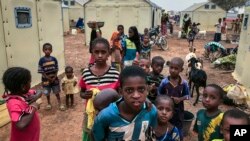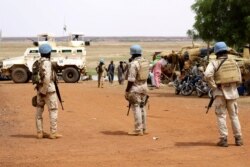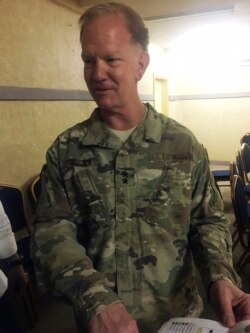While global attention remains centered on the coronavirus, a U.S. special envoy is sounding the alarm about crises in Africa’s Sahel region, especially the political unrest in Mali, and the growing number of alleged human rights violations and abuses in the troubled region.
Amid the world focus on the coronavirus pandemic, another force is bringing death and destruction to the vast, arid region of Africa known as the Sahel. J. Peter Pham, the U.S. top envoy to the region, says recent developments there are of great concern.
“In the last quarter, by our count — that's the quarter ended June 30th — there were 270 attacks by extremists in Burkina Faso, Mali and Niger. That number represents an almost 40 percent increase from a year earlier. So that's significant. That's worrisome as a trend,” he said.
U.N. peacekeepers and U.S. forces have worked for several years on a multibillion-dollar peacekeeping mission in the region, though the Trump administration has publicly questioned the value of the costly mission and pushed to cut budgets and troops numbers in Africa.
Pham says this is fundamentally a governance problem, not a military one.
“Let’s face it: if we really examine the crisis in the Sahel, at the end of the day, it's a crisis in state legitimacy, in governance, in providing basic goods and services and inclusion to various populations. As a result of this, I'm particularly concerned about recent human rights abuses which have been reported, especially the ones reported out of Burkina Faso by Human Rights Watch. These abuses have to stop, because not only are they morally and ethically wrong, but they're also counterproductive in the fight against extremism by delegitimizing governments, alienating people from them.”
It is, military officials acknowledge, a tough battle for them to shoulder. U.S. Air Force Maj. Gen. Marcus Hicks, the head of U.S. Special Operations Command Africa, told VOA in 2018 “we are not winning” in the fight to stamp out violent extremism, led by several al-Qaida-linked groups, in the region.
Pham noted weak institutions, like Mali's challenged government, have also sparked public protests that may lead to further instability
VOA asked Pham: are we winning in the Sahel?
“It depends on what time horizon you use and what definition you use for winning," he said. "If it's scoring specific successes, I think what our French partners manage to do with U.S. cooperation and support, with the elimination of the emir of al-Qaida in the Islamic Maghreb, Abdelmalek Droukdel, a month or so ago, that certainly was a success. On the other hand, the expansion of insecurity in places like Burkina Faso, in the middle belt of Mali, certainly cannot be counted a success. So I think there are specific successes in this long fight. At the same time, there are ongoing challenges and and difficulties. So I think it's a matter of accounting and how one looks at that.”
There’s no straight answer, he said, because this is not a straightforward military problem with conventional forces on the battlefield. This is, he said, a situation that requires attention, patience and diplomacy.






